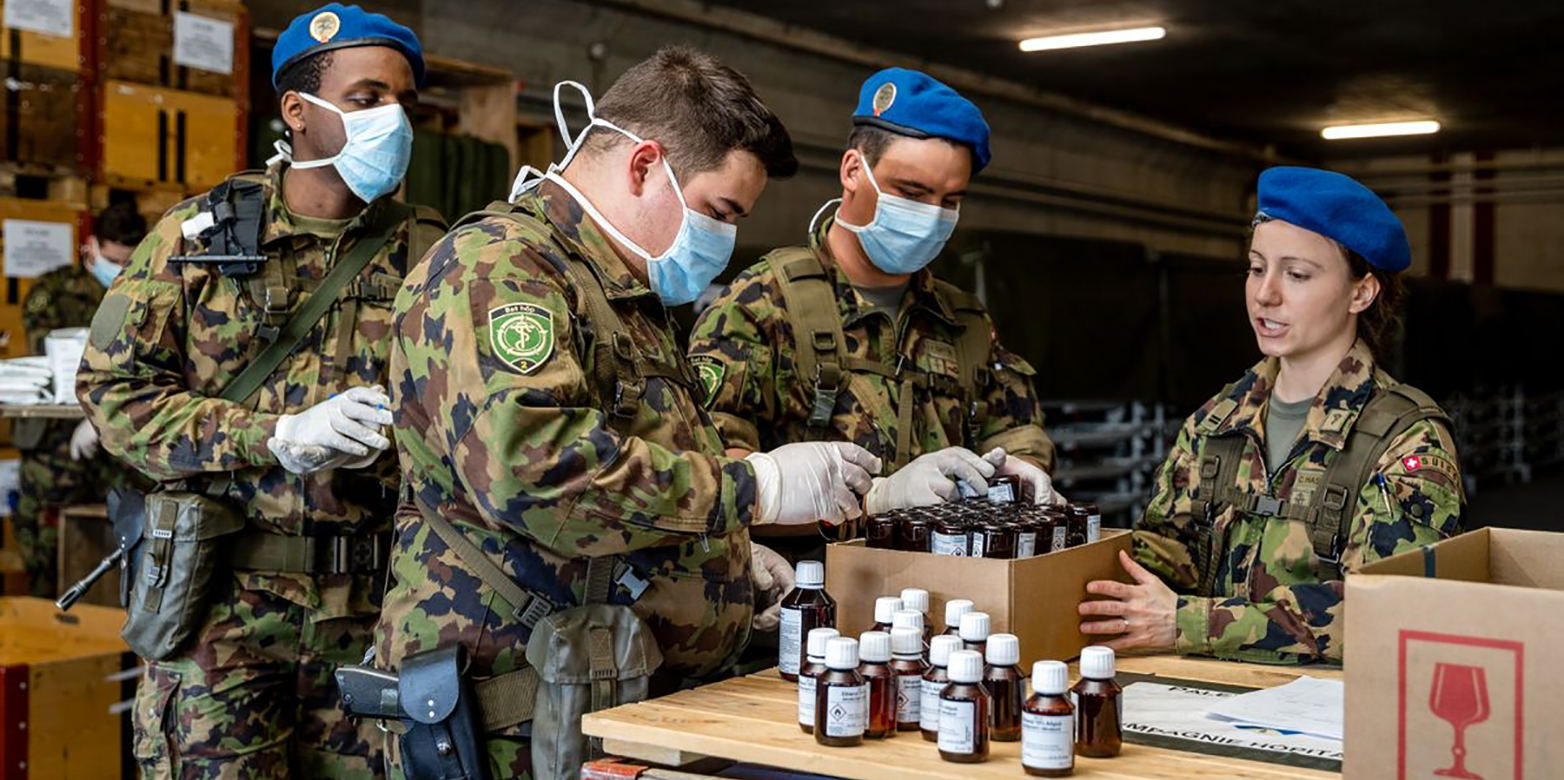Learning from Corona: How Strategic Can We Be?
The health emergency and its economic consequences bear risks and opportunities for Europe's armed forces, argues Amos Dossi in this CSS Policy Perspective. On the one hand, there are short-term interventions in specifications and budgets, on the other hand long-term constructive impulses.

Angehörige des Spitalbataillons 2 der Schweizer Armee im Corona-Unterstützungseinsatz. Philipp Schmidli / VBS/DDPS
Key points
- The corona crisis puts all state institutions under budgetary constraints. This implies distributional conflicts between departments, between civil and military elements and within the armed forces.
- Whether the armed forces will have to accept major cuts or gain legitimacy depends to a large extent on whether the interpretation of the current crisis is interpreted narrowly or against the backdrop of a broad spectrum of realistic crisis scenarios.
- A narrow focus renders the requirements of the current situation absolute and contrasts them with the decoupled profile of a combat force. Such a perspective unnecessarily plays off military and civil security tasks against each other and ultimately weakens both.
- A comprehensive or strategic perspective, on the other hand, assumes a broad spectrum of realistic crisis scenarios and commits itself - also in terms of fiscal policy - to the armed forces as the backbone of integral crisis insurance. It favors subsidiary synergies without putting core military tasks up for discussion.